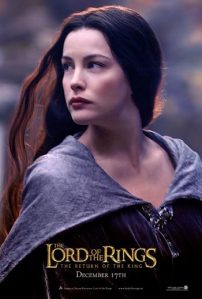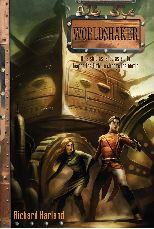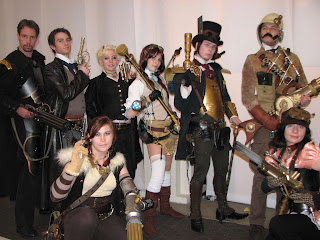 Recently I came across an interesting phenomenon. Young women of today (educated, professional young women) find feminism a bit passe. ‘What’s all the fuss about?’.
Recently I came across an interesting phenomenon. Young women of today (educated, professional young women) find feminism a bit passe. ‘What’s all the fuss about?’.
I was there in the 70s when the books written by female SF writers were being published.
In the 70s I had a bookshop where I sat and read all day. I’d read a book before lunch, a book after lunch and a book after dinner. It was heaven. Amongst the authors I discovered were Joanna Russ, Vonda McIntyre, Ursula K Le Guin and Doris Lessing.
This was back in the days before the web and you could hardly discover anything about writers. I never knew that Russ had won both the Hugo and the Nebula, I just liked her books. When I discovered Joanna Russ, I read everything of hers that I could find. I can still remember scenes from her books 30 years later. Her characters were so different, they resonated with me. Now I can google her bio to learn about her. Her wry sens of humour came through her writing. Here’s a great quote from her on ‘How to Suppress Women’s Writing.
“She didn’t write it. She wrote it but she shouldn’t have. She wrote it but look what she wrote about. She wrote it but she isn’t really an artist, and it isn’t really art. She wrote it but she had help. She wrote it but she’s an anomaly. She wrote it BUT…”
And here’s a review of ‘How to Suppress Women’s Writing’.
 Then there’s Ursula K Le Guin, much has been written about her work. In 1969 when Le Guin wrote Left Hand of Darkness it won the Hugo and the Nebula. See here for some background info. (And here is a study guide for the book. Don’t you love the web?). When I read ‘Left Hand of Darkness’ I had no trouble identifying with the non-gendered aliens. But the first time I read it I didn’t notice that Le Guin had used the male pronoun for these aliens. This book is all about gender and perception, yet she used ‘he’ as the generic pronoun. When asked years later, Le Guin said she had used ‘he’ as a default. (I came across this quote while researching for my MA, and don’t know where the reference is now). But since then …
Then there’s Ursula K Le Guin, much has been written about her work. In 1969 when Le Guin wrote Left Hand of Darkness it won the Hugo and the Nebula. See here for some background info. (And here is a study guide for the book. Don’t you love the web?). When I read ‘Left Hand of Darkness’ I had no trouble identifying with the non-gendered aliens. But the first time I read it I didn’t notice that Le Guin had used the male pronoun for these aliens. This book is all about gender and perception, yet she used ‘he’ as the generic pronoun. When asked years later, Le Guin said she had used ‘he’ as a default. (I came across this quote while researching for my MA, and don’t know where the reference is now). But since then …
‘Le Guin has written essays since about the assumptions she made in writing the book. She’s also written the story “The Winter King” where she uses “she” as the pronoun for all Gethenians, rather than “he” as she does in the book (The Left Hand of Darkness), and the story “Coming of Age in Karhide.” Both of these explicitly feminise the Gethenians. They’re interesting, as are her writings about the book, but they’re afterthoughts from a different world.’
It is amazing how the perception of the character changes if you believe the narrator to be male or female. I once read a whole short story where no gender specific pronouns were used. (No ‘he’ or ‘she’). It made for some challenging grammar.The author used non-gender specific names and I found my perception of whether the character was male or female changed depending on whether they were being active or passive. The author was making a point about our perceptions as readers. (This story was also published in the 70s, when feminism was pushing boundaries).
 Vonda McIntyre came out to Australia for a convention in the late 70s. (Can’t remember which one). I read her book ‘Dreamsnake’ . It won both a Hugo and Nebula. One line made me realise how gender blinkered I was by my upbringing. We are all products of our time. We don’t see it how blinkered we are unless writers and artists hold a mirror to us. SF and Fantasy create their own worlds, so they can hold a slightly distorted mirror that can surprise us with its insights.
Vonda McIntyre came out to Australia for a convention in the late 70s. (Can’t remember which one). I read her book ‘Dreamsnake’ . It won both a Hugo and Nebula. One line made me realise how gender blinkered I was by my upbringing. We are all products of our time. We don’t see it how blinkered we are unless writers and artists hold a mirror to us. SF and Fantasy create their own worlds, so they can hold a slightly distorted mirror that can surprise us with its insights.
In 2007 Lessing was awarded the Noble Prize for Literature. With Doris Lessing I must have discovered her in the brief period that she was writing Fantasy and SF. It is all a bit fuzzy now, but what stands out in my mind is the humanity of her writing.
All these years later, I’m taking my hat off to those writers. Thank you, Ladies.
It is because of people like you that feminism can seem passe.
What writers have impressed you with their insights?
 I spent way too long today writing an article on fantasy, why it is popular with both the writers who choose to write in this genre, and with the readers, who keep buying those trilogies.
I spent way too long today writing an article on fantasy, why it is popular with both the writers who choose to write in this genre, and with the readers, who keep buying those trilogies.








